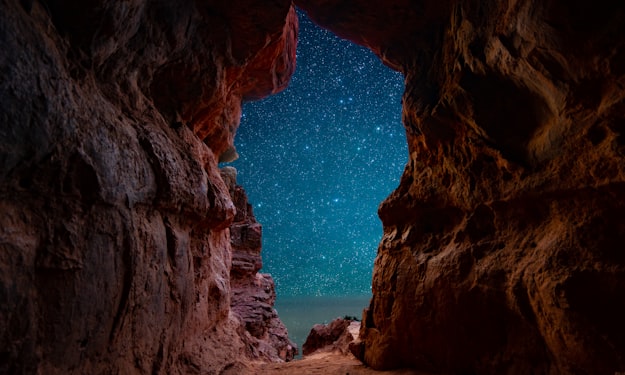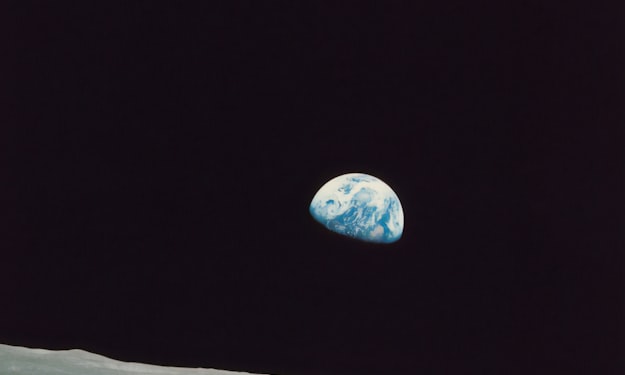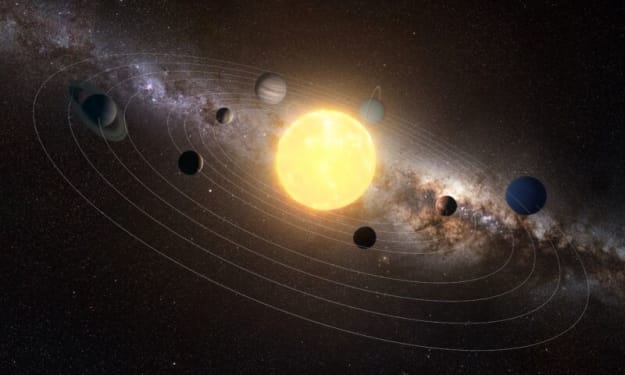space
Space: The Final Frontier. Exploring space developments and theorizing about how humans fit into the universe.
What Element Has Atomic Number 79?
British spelling. I write easy-to-understand stories regarding the universe and life, here are two of them. Enjoy. <><><>
A B ForbesPublished 2 months ago in FuturismWhy Is Our Moon Called The Moon?
British spelling. <><><> Our Moon. In the Solar System, the total number of confirmed moons that orbit the planets is 288.
A B ForbesPublished 2 months ago in FuturismThe Size of Our Local Area
British spelling. <><><> Now it is time to use our imagination. Our solar system seems massive to us but is very small when we compare it to our galaxy, the Milky Way, and is minuscule when we think of the universe as a whole.
A B ForbesPublished 2 months ago in FuturismThese Amazing Space Journeys Are Incredible
British spelling. <><><> About 27 years ago, I was on a fishing boat travelling from Scotland to Norway. It was April 1997. The mate of the boat, who, like myself, had an interest in astronomy, called me in the middle of the night.
A B ForbesPublished 2 months ago in Futurism

Where in the US Is Best For Seeing UFOs in the Sky? According To This Map
Alert, UFO chasers: Your best bet if you want to see one in the US is to travel to the West or New England. And remember to avoid going south. This is supported by a recent scientific study that sought to comprehend the regional environmental elements influencing the geographic distribution of their sightings throughout the continental United States.
Francis DamiPublished 2 months ago in FuturismIt's One Small Step for Man, One Giant Leap for Private Enterprise
In a groundbreaking accomplishment that harkens back to the heroic days of the Apollo missions, the United States has again left its mark on the lunar surface. Over half a century has passed since the last footprint was etched in the moon’s dust by an American astronaut. The Odysseus lunar lander’s touchdown symbolizes not just a triumph of engineering and science but also heralds a new era where private enterprise takes a leading role in the space race. The following report details this historic moment.
Rusafa Nabiha TahseenPublished 2 months ago in FuturismExploration of Xylophia
On the distant planet of Xylophia, where the sky danced with hues of violet and the air shimmered with an otherworldly glow, a team of interstellar explorers landed on the surface, eager to unveil the mysteries of this alien realm. As they stepped out of their spacecraft onto the unfamiliar terrain, they were greeted by a chorus of melodic chirps and the rustle of iridescent foliage.
Mason DarniellePublished 2 months ago in FuturismOuter Space: Its Size Is Beyond Belief
British spelling. <><><> Outer Space. We were successful in sending men to the Moon and back. We are also contemplating sending men and women to Mars, but the red planet is just a step away when we think of the size of the solar system and is minuscule in comparison to the universe.
A B ForbesPublished 2 months ago in Futurism

Gaganyaan: Maiden human space flight
India's Gaganyaan mission, a significant milestone in the country's space exploration journey, aims to send humans into outer space by 2025. This ambitious project is a part of India's broader space program, the Indian Space Research Organisation (ISRO), which has been steadily expanding its capabilities and achievements in the field of space technology. Gaganyaan is a three-part mission, comprising of a crew module, service module, and the crew itself. The crew will consist of three Indian astronauts, who will spend up to seven days in space, orbiting the Earth at an altitude of around 400 kilometers.
Vishnu pprasathPublished 2 months ago in FuturismThe Difference Between Meteoroids, Meteors, and Meteorites
Here are two of my easy-to-understand stories regarding the universe and life. British spelling <><><> My articles are not meant for people who have advanced knowledge of astronomy; we are not all experts on the subject.
A B ForbesPublished 2 months ago in FuturismYou Are Looking Back in Time
British spelling. Just a few hundred years ago, people believed that everything out there in space that could be seen with the naked eye revolved around the Earth.
A B ForbesPublished 2 months ago in Futurism

Let us Explore an Alternate Solar System
Have you anytime contemplated what it could be like if every planet in our planetary group was of the size of Earth? Well it's chance to hop into this extraordinary situation .
















